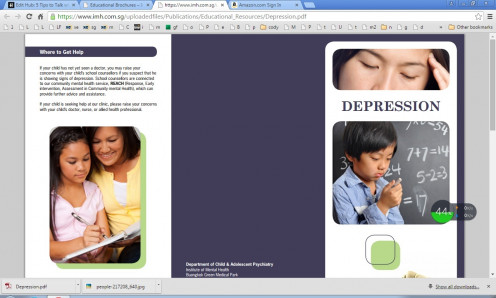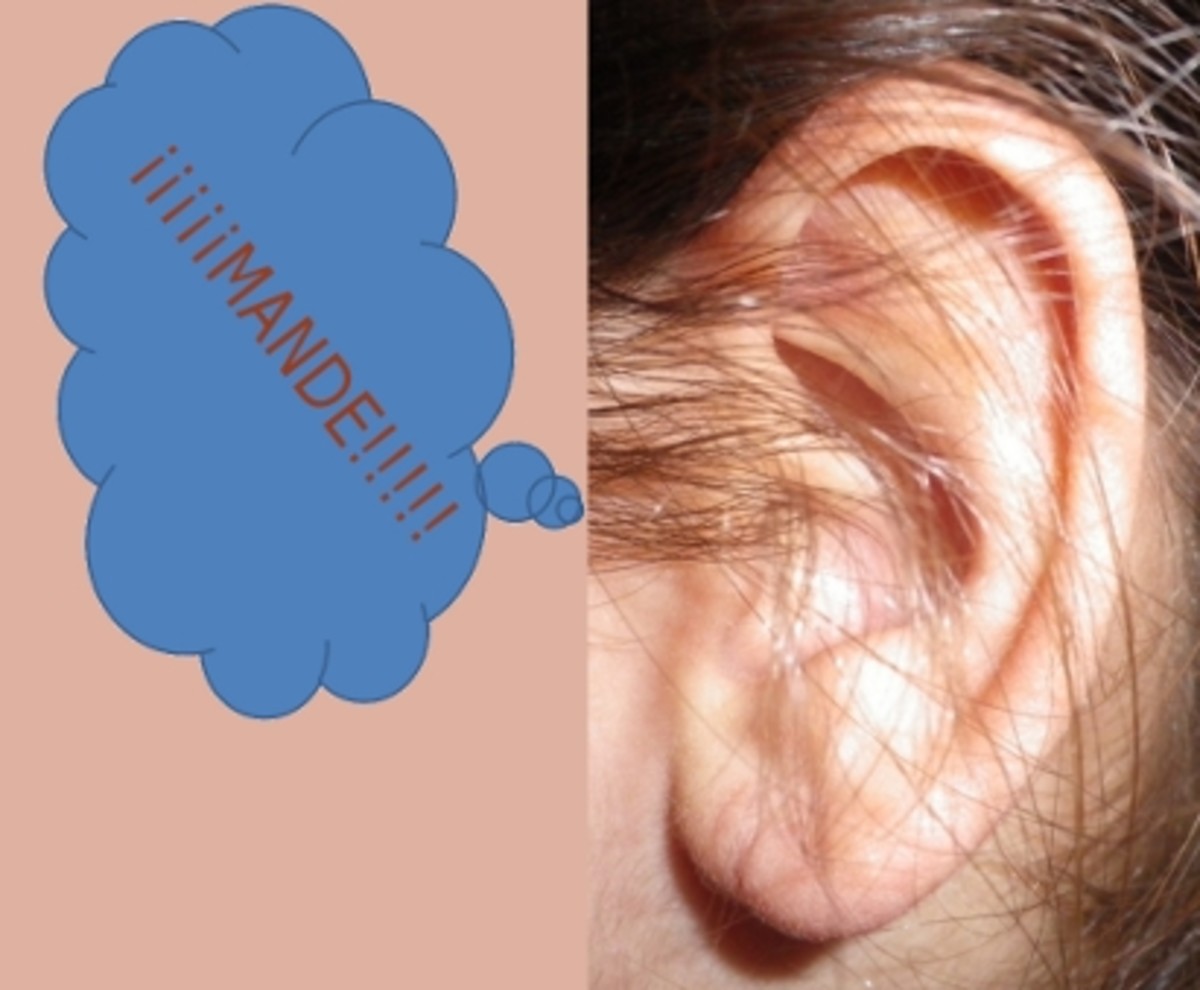5 Simple Tips on How to Talk to your Doctor
Ask about your medications

Talking to the doctor
According to a recent health survey based on 30 medical studies, up to 50% of patients forgot the medical information that the doctors had given to them or caregivers.
Surprisingly, almost half of what the patients remembered were incorrect and much confusion was raised.
Evert patient who visits a doctor is a consumer, a customer to health care. You have the right to ask and receive correct information from the specialists.
It is not embarrassing or wrong to repeat your questions unless you have hearing or memory problems.
When you visit he doctor, you have to talk to him by telling him your problems and asking him questions because if you don't ask him questions, he presumed that you had understood the whole situation.
Unfortunately, talking to your doctor may take some time but he doesn't have the whole day for you!
This hub will teach you how to prepare yourself to talk to your doctor before your appointment arrives.
Read this book before you see the doctor
This is an ideal book for adults to know the latest medication prescribed by doctors. It has a great deal of description of the latest medication hard to spell names, with specific information for each drug usage, dosage and side effects. One is able to understand the emotional problems that a patient may encounter, abnormal behavior after consuming the medications.
Buy A Book of Medication Information
Old folks language barrier

Reasons for Misunderstandings
Sometimes, it is due to:
- conversation misunderstanding between the doctor and patient,
- forgetfulness,
- patient stubbornness,
- refusal to ask for further details due to embarrassment or
- want to save his own ego( save face) and
- lack of confidence (dare not ask).
- difficulties to communicate in different languages
To be honest, getting treatment and consulting advice from the doctor can be a nerve-racking experience for every patient especially when there is language barrier in Asian countries.
What did you say??

Doctor and Patient Communication Breakdown
For example, in Malaysia, most doctors are working in General Hospitals are Malay doctors.
They couldn’t understand or explain clearly the medical terms to non-Malay patients such as the elderly folks and illiterate patients who are Chinese educated , speaks only Chinese dialects or non educated at all. The same problem applies for the Hindu elderly folks too.
As the saying goes: "Like a chicken talking to a duck"
Vice versa, non-Malay patients couldn’t explain or express the pain they are suffering unless a nurse translator or a kind Samaritan who happens to be around, could understand their language, dialects are able help them out.
When the patients are stressed or frustrated, they pay more attention to the medicine dosage instead of the treatment details on how to cure or prevent the sickness or illness from recurrence.
In other words, they do not understand that wrong dose or overdose of the medication can be fatal.
Most of medicines prescribed by the doctor can be fatal if taken together with other drugs ( medicines) without consulting the doctor first.
This may result to side effects, allergies and symptoms of another illness.
How to talk to your doctor
Doctors = Spiderman

Are you afraid to talk to your doctor?
- Young or old patients are afraid to talk to doctors in charge of their healthcare problems.
- Most of them claimed that their fear was induced by the difficulty to explain their problems.
- Some patients are reluctant to discuss or reveal their health problems to the doctor.
- Hence, both the doctor is unable to diagnose the actual source of the illness.
- Unable to accept the doctor's suggestions
- Feeling the pressure from the doctor's presence or words.
Help Me!

Do you fear when you talk to the doctor?
Why are you afraid of?
Bring a friend

Tip #1: Bring someone with you
Bring along someone with you if you have problem with:
- failing memory,
- shyness,
- fear of doctor presence,
- language problems ,
- especially someone you know is an illiterate patient or
- an elderly folk intends to pay a visit to the doctor...
You will feel more comfortable, less panic and anxiety when you have another caregiver or family member to help you by :
- taking notes of the doctor’s orders
- advises and important medical information.
- Your companion will be your right hand man, helps you to listen.
- He can understand and ask questions when required.
Sometimes, old folks tend to forget the important questions when they meet the doctor face to face. Suddenly, he forgets everything!
Bring Along ...


Tip #2 :Come prepared
- Do bring along a notepad to make short notes regarding the medicine dosages, when and how many times should be taken per day.
- Jot down what actions should be taken before taking medical tests and what to do after the test is done.
- Write down the doctors advice on health care, diets and what to do and not to do.
- They hate to repeat again.
- If you are slow at writing, ask your friend or companion to help you to jot down the notes.
This recorder is very convenient to carry and easy to use with 2 large buttons.
One for STOP and another for RECORD, any old folks can understand that.
There is a toggle wheel that provide the function to seek forward or rewind the recording session.
As for the ENTER button in the center, that is the message prompts, pause for a while, like reading a passage.
Hit "STOP" button when recording has finished.
There is also the DELETE button where you can erase the recorded voice recording but it will ask for your verification before deleting it.
Battery life is long since all it does was recording voices.
Great value for money.
Buy A Reliable Voice Recorder
Tip #3: - Record Conversation
- It would be much easier for you to cut down all the hassle if you could ask for the doctor permission to allow you to record the conversation so that you can replay his detail information and advice at home at your own pace.
- Smartphone and tablets are convenient gadgets that come with recording voice messages function which is easy to use.
- Practice the recording at home so that you won’t panic later on.
- Don’t ask the doctor how to use your smartphone to do the recording!
What Questions Can I Ask ?
What is the test for?
| Are there any alternatives?
| How do you spell the name (of the drug)?
|
|---|---|---|
How much does it cost?
| Can I forgo surgery?
| Is there any side effects?
|
Do I have to fast ?
| What are the complications?
| When can I stop taking it?
|
When will I get the result?
| Will there be any recurrence?
| Will it "clash" with another medications I am taking now ?
|
Don't be afraid to ask questions

Tip #4: Ask questions
- You have the right to ask the doctor to elaborate further the medical information about the sickness / illness that you are suffering.
- Do not be afraid to ask questions.
- It is not foolish and you don’t have to feel embarrassed to ask any questions regarding health related issues whether physically or internally because you need to know the important advice and tips to aid you to recover quickly.
- Get a small book to jot down your questions, concerning your illness before your next appointment.
- List out the important questions in the top 3 because the doctor in charge is limited to a short time to communicate with each patient.
- Do not ask “no common sense” questions. It is wise to check out with medical books, magazines or websites before you ask silly questions.
- Ask these questions every time you seek consultation with a doctor.” What is my actual problem?” “What should I do now?” and “Why is it important for me to do this?”
- These questions are not demanding. They help you to understand further the seriousness of the situation and overcome the sickness / illness faster before another unexpected problem occurs.
- In addition, help to prevent any relapse from happening.
Don't leave the brochures behind

Tip #5: Don’t leave empty handed
- Ask the doctor for handwritten instructions, useful when you seek the pharmacy over the counter medications or aids.
- You may find brochures, pamphlets and leaflets related to healthcare to aid you in gaining more valuable knowledge of the sickness / illness.
- Brochures self teaches you ways to improve your personal health care at home.
- Some of this information is printed in bilingual languages with colorful pictures, convenient for patients to read and understand easily.
- Don’t be shy to ask. You will not lose anything
Be happy

Summarize Tips
- Always check with various websites what the medications are for
- Do not trust the doctor's prescription completely. Doctor and the pharmacist are humans. They make mistakes too.
- Your health welfare is more important than your pride. Don't be as stubborn as a bull.
- Always ask doctor for the medications side effects
- Let the doctor know if you have any allergies to drugs or food.
- Ask the doctor what type of diet you should follow.
- Be happy when you obtained your answers. Nothing is perfect. Life has to go on, right?
- Talking to your doctor will help you to reduce health risk, reduce doctor consultation cost and healthcare cost.
- Talking will save your life!
This content reflects the personal opinions of the author. It is accurate and true to the best of the author’s knowledge and should not be substituted for impartial fact or advice in legal, political, or personal matters.
© 2015 peachy










